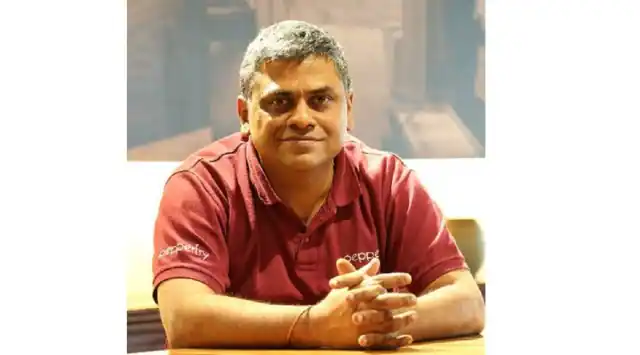
The unexpected loss of Ambareesh Murty, one of the co-founders of Pepperfry, due to a sudden stop of his heart has raised concerns about heart health, especially among young individuals. This article aims to provide a comprehensive understanding of the circumstances surrounding Murty’s tragic passing, shedding light on the subtle indicators that could signal a heart stopping, and delving into the diverse underlying factors that might contribute to this critical heart condition. By exploring these aspects, we can gain valuable insights into the importance of recognizing the signs, seeking timely medical attention, and adopting a proactive approach to heart health. It serves as a reminder that even seemingly healthy individuals can be at risk, emphasizing the need for awareness and preventive measures to ensure the well-being of our hearts.
A Sad Turn for Pepperfry: Looking at Ambareesh Murty’s Passing
The happy journey of Pepperfry became very sad when Ambareesh Murty, who was 51 years old, died because his heart suddenly stopped while he was in Leh. Ashish Shah, who started Pepperfry with him, shared this very sad news on X, which used to be called Twitter.
“I’m very sad to tell you that my friend, teacher, brother, and good friend @AmbareeshMurty is not with us anymore. We lost him last night because his heart suddenly stopped in Leh.
Please pray for him and help his family and loved ones,” Shah wrote on X.
The Man Behind the Vision:Remembering Ambareesh Murty
An alumnus of IT Calcutta, Murty earned his Bachelor’s in Engineering from the Delhi College of Engineering in 1994. On X, he humorously described himself as the “Co-Founder, http://Pepperfry.com. Furniture Salesman, Closet Sociopath, History Buff, Reader of Epic Fantasies, Poker of Bears.”
Alarming Trend: Cardiac Issues Among the Young
Murty’s untimely departure has brought to light a concerning trend: an increasing number of heart-related incidents among young individuals. Even those who maintain an active lifestyle, such as Murty, are vulnerable to sudden cardiac arrest, a heart condition that was once rare in young adults. The key challenges in addressing heart-related issues often stem from underdiagnosis and a lack of awareness about the disease.
Understanding the Subtle Clues: Identifying the Onset of Cardiac Arrest
Recognizing the quiet indicators of a cardiac arrest is crucial in potentially preventing dire outcomes. Familiarizing ourselves with a few critical signs is essential:
– Sudden Loss of Responsiveness: The individual becomes unresponsive and fails to react to any form of stimulation.
– Irregular Breathing: Breathing either halts completely or becomes erratic and gasping.
– Absence of Pulse: When attempting to locate a pulse, it cannot be felt in the neck (carotid artery) or wrist (radial artery).
Dr. Udgeath Dhir, the Director and Head of Cardiothoracic and Vascular Surgery at Fortis Memorial Research Institute, Gurugram, provides insight, stating, “Cardiac arrest is diagnosed using an ECG. The presence of ventricular fibrillation or the absence of an ECG recording (asystole) serves as the initial telltale signs of a sudden cardiac arrest.”
The Complex Web of Causes: Unraveling Cardiac Arrest Triggers
The causes of cardiac arrest are diverse. Abnormal heart rhythms like ventricular fibrillation or ventricular tachycardia can disrupt the heart’s electrical signals. Coronary artery disease, narrowing the blood supply to the heart, can trigger it. Myocardial infarction, cardiomyopathy, and birth defects are also potential catalysts. External factors such as severe electrical shock, oxygen deprivation due to water submersion, certain drugs, severe trauma, blood loss, and inadequate oxygen levels in the blood can lead to cardiac arrest.
A Call to Awareness and Vigilance: Preventing Future Tragedies
In the wake of Ambareesh Murty’s tragic passing, it is crucial for all to be attentive to the early signs of cardiac arrest and to cultivate a broader understanding of its potential causes. Awareness and timely intervention can make all the difference in preventing such devastating occurrences.












